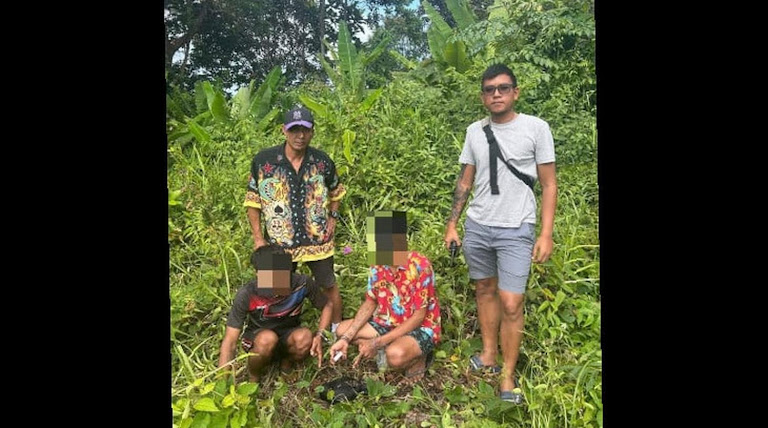Phuket Bag Snatch Exposes Thailand’s Inequality Crisis and Migrant Struggles
Beyond the beach snatch: Inequality and migrant exploitation drive crime in Thailand’s tourist paradise.

How do we build just societies, not just in aspirational rhetoric, but in the cold calculus of broken windows and stolen handbags? The arrest of two Myanmar nationals, “Mr. Chai U” and “Mr. Saw Lin,” for a Patong Beach bag snatch, dutifully reported by The Phuket News, offers a fleeting sense of order restored. But to stop there, to treat this as simply a case closed, is to miss the forest for the trees.
Because behind every petty crime lies a story of cascading failures — a web woven from economic anxieties, societal biases, and historical injustices. Mr. Chai U and Mr. Saw Lin weren’t born with a predisposition for grand theft Prada. They were, more likely, sculpted by forces largely beyond their control. So, what are the invisible hands that guided them to that beach that night?
Consider the historical arc of Thailand’s development. The country’s embrace of tourism, while undeniably lucrative, has also mirrored a global trend of increasing inequality. The World Bank, in a 2023 report, noted that while Thailand has made significant strides in poverty reduction, the gap between the richest and poorest segments of society remains stubbornly wide, fueled in part by the uneven distribution of tourism revenue. In Phuket, this translates to gleaming resorts juxtaposed against the shantytowns where many migrant workers reside.
The case stems from an incident reported on June 26, when a victim told police that while sitting with friends on Patong Beach at around 1:10am, a man suddenly snatched a black Prada handbag placed beside them. The thief fled the scene on a waiting motorcycle driven by an accomplice.
What we see in this bag snatch, then, is not merely an isolated incident of criminality, but a symptom of this deeper ailment: a stark illustration of the chasm separating those who profit from Thailand’s tourist economy and those who are left scrambling for scraps. The Prada handbag becomes a potent symbol — a physical manifestation of a promise unfulfilled, of opportunity denied.
But the problem runs deeper than just economics. The precarious legal status of migrant populations amplifies their vulnerability. Denied full citizenship rights, often exploited by unscrupulous employers, they are pushed to the margins of society, where the line between legitimate survival and illicit activity becomes increasingly blurred. As Dr. Supang Chantavanich, a leading expert on migration, has argued, “The lack of pathways to legal employment and social integration for migrant workers in Thailand creates a breeding ground for exploitation and, unfortunately, sometimes, crime. These individuals are often forced into the informal economy, where they are vulnerable to abuse and have limited access to legal recourse.” This lack of recourse, this feeling of being trapped, is often the tipping point.
We must confront the uncomfortable questions: What viable alternatives were realistically available to Mr. Chai U and Mr. Saw Lin? Did systemic barriers, rooted in language, education, or blatant discrimination, effectively shut them out of legitimate economic participation? And crucially, what preventative measures — strengthened social safety nets, expanded access to education and vocational training, robust anti-discrimination policies — can be implemented to prevent others from following a similar path? The true measure of justice lies not in meting out punishment, but in dismantling the conditions that breed crime in the first place.
Thinking systemically, recognizing the intricate web of cause and effect that underpins even seemingly minor infractions, is not about excusing criminal behavior. It’s about acknowledging the uncomfortable truth that society itself often plays a role in creating the very problems it seeks to solve. The story of Mr. Chai U and Mr. Saw Lin, then, serves as a stark reminder that in an increasingly interconnected world, true justice demands more than just arrests and convictions. It requires a willingness to confront the uncomfortable realities of inequality and to build a society where opportunity is not a privilege, but a right.









